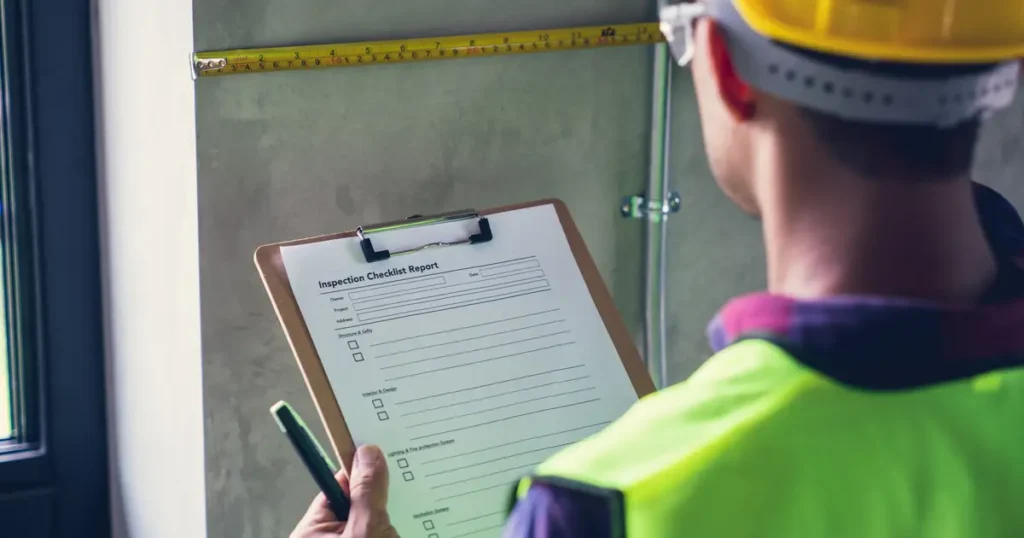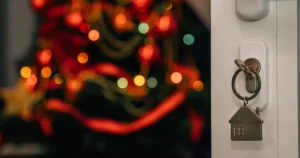You’ve finally found your dream home, and you can’t wait to get the keys and start moving in. While you may be anxious to sign that closing paperwork, there’s one critical step you won’t want to miss. A home inspection is a vital step in the home-buying journey. A thorough inspection offers valuable insights into the true condition of the home and may uncover potential problems you’ve overlooked.
Home inspections serve as a safety net for buyers, allowing you to address any concerns that come up before you finalize your purchase. From checking the foundation to evaluating the roof, your home inspector will give you the critical information you need to ensure there are no unexpected surprises after you close the deal.
What is a Home Inspection?
A home inspection is a comprehensive visual evaluation of a property’s physical structure and key systems. The goal of an inspection is not only to spot potential problems but also to understand the home’s overall health and potential longevity. Having a home inspection can give you the peace of mind that comes with knowing the home’s true condition inside and out. With this knowledge, you can make a confident, informed decision about whether you feel comfortable buying the home.
The inspection may be your final opportunity to identify property defects or concerns before signing your closing paperwork. If problems are uncovered, it can also create opportunities to negotiate with the seller.
Getting Started With a Home Inspection
Typically, the home buyer covers the cost of the home inspection. However, you may be able to negotiate this when creating your offer. You may also consider adding a home inspection contingency to your real estate contract.
This clause states that your decision to proceed with the purchase hinges on the inspection’s outcome. Should any significant issues arise, this contingency empowers you to renegotiate, request repairs, or even withdraw from the sale.
Finding a Reliable Home Inspector
Ask friends, family, or your realtor to recommend a qualified home inspector. You can also look at the inspector’s online reviews. When you contact the inspector, be sure to ask what the inspection covers, how long it will take, and the total cost. Also, confirm that the inspector is certified and insured.
If possible, plan to attend the inspection. This will give you an opportunity to see any potential concerns firsthand, ask questions, and actively engage with the inspector.
What Does the Home Inspection Cover?
Understanding what your home inspector is looking for can help you know what questions to ask so you can better understand the condition of the home. According to the American Society of Home Inspectors (ASHI), a certified home inspector reviews 12 specific items.
The biggest concerns they’ll be looking for are structural damage to the foundations or roofing and water damage. Mold and mildew are other serious issues that home inspectors will look for. You can expect a quality home inspector to assess:
Foundation, Basement, and Structural Components
A sound foundation ensures the safety and longevity of the house. An inspector will look for potential problems with the foundation, including signs of cracking, shifting, or settling. In the basement, the inspector checks to make sure the home has proper insulation and ventilation and looks for signs of structural damage, decay, or water intrusion. They’ll also review the home’s structural components, including the integrity of beams, posts, and other load-bearing structures.
Interior Plumbing and Electrical System
The plumbing and electrical systems are vital aspects of the home. During the inspection, the inspector will test all faucets and showers for pressure and drainage and check visible pipes for damage or signs of leaks. They’ll also examine the electrical panel for proper labeling, grounding, and capacity and ensure that all outlets, switches, and fixtures are functioning correctly.
Roof and Rain Gutters
The roof is a home’s primary shield against external elements. Maintaining its integrity is essential for preventing internal damage. The inspector will look for damaged, missing, or curling shingles, check for proper flashing around chimneys and vents, and examine gutters and downspouts for proper drainage and potential blockages.
Attic and Visible Insulation
A home’s attic plays a crucial role in insulation and ventilation. To check its condition, the inspector will ensure the attic has proper ventilation, check for signs of leaks or water damage, and assess the quality and adequacy of insulation.
Heating System
Ensuring the heating system works as it should is critical for both comfort and safety. Expect your inspector to test the system to ensure it’s operating efficiently, check for potential gas leaks or odors, and examine flues for blockages or leaks.
Central Air Conditioning System
Inspection of the central air conditioning system is contingent on the weather. When possible, the inspector will operate the system to ensure it cools efficiently, check the condition of filters and vents, and examine external units for potential damage or blockages.
Windows and Doors
Windows and doors play a crucial role in the home’s insulation, security, and overall functionality. You can expect your inspector to test windows and doors to ensure they open, close, and seal properly, check for damaged or rotted frames, and ensure locks and security mechanisms are functioning.
Walls, Ceilings, and Floors
When inspecting a home’s walls, the inspectors will check for cracks, holes, or other damages and test outlets and switches. They’ll also check the walls, ceilings, and floors for signs of mold, mildew, or water damage. In addition, floors are checked for levelness, stability, and the absence of cracking, creaking, or other indications of potential structural issues beneath the flooring.
What to Do After Your Home Inspection
Once your inspection is complete, you’ll receive a detailed inspection report that outlines the inspector’s findings. Don’t panic if the report includes a long list of issues. This is quite common, especially for older properties.
Instead of worrying about the number of problems, pay attention to the severity. If only minor issues are detected, you can create a list and consider discussing them with the seller, possibly requesting small fixes.
However, major issues need to be addressed before you finalize your purchase. At this stage, expert advice and open communication with the seller can help ensure that your new home is a sound investment.
You might need specialized contractors or experts, like pest controllers, to further evaluate the problem. Be sure to get multiple quotes for any potential repairs or renovations so you can ensure a fair price and quality work.
Peace of Mind for Your Home Purchase
A thorough home inspection gives you the information you need to make your home purchase with confidence. It’s a critical step in the home-buying process that can help protect you from unexpected expenses after you purchase the home.
When you’re ready to dive into the homebuying journey, Keller Home Loans is here to guide you through the process. Contact us today to learn how we can help you achieve your dream of home ownership.






